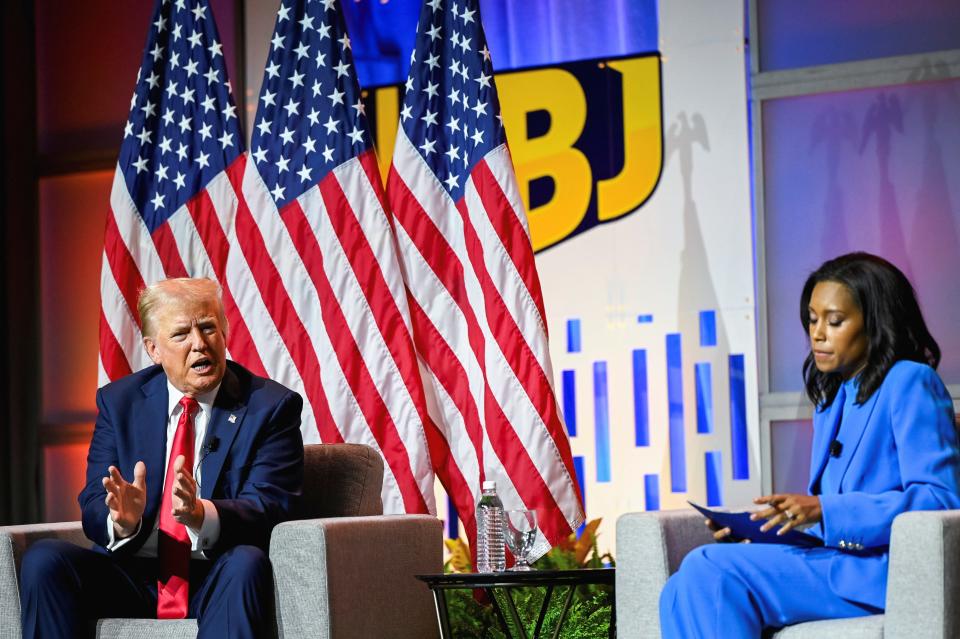“You don’t seem like your name is Shaniqua, is that your actual name?”
This is a common reaction when I introduce myself. As a child, I thought people simply found my name hard to say, but by my teenage years, I realized the issue went deeper. The mispronunciations evolved into judgments, and suddenly, my name carried a weight I never asked for.
By the time I reached college, there was no longer any ambiguity about how people felt about my name. I was often told I seemed more like an “Ashley,” or “nothing like a Shaniqua.” During my run for president of the Black Student Movement, students left disparaging comments about me. The one that cut deepest was, “And of course her name is Shaniqua.”
I even had an ex-boyfriend tell me his mother was concerned about whom he was dating because of my name but felt better after he shared my accomplishments.
Though the message wasn’t said directly, the underlying sentiment was clear. The stereotype tied to my name was too loud to ignore, and it isn’t just personal experience that proves this. Look up “Shaniqua” on Urban Dictionary, and you’ll find definitions like: “a common name used to mock/describe a Black woman from the inner city.” These harmful caricatures turn the name Shaniqua into a punchline, a “safe” vessel for racial judgment.
This isn’t just uncomfortable; it has real-world consequences.
Multiple studies show that job applicants with “ethnic-sounding” names like mine are less likely to receive callbacks than those with “Anglo-sounding” names, even with identical résumés. This form of name-based discrimination not only perpetuates racist tropes but also affects our professional, social and emotional well-being.
Which brings me to Laura Loomer, the far-right provocateur who recently referred to prominent Black women like Vice President Kamala Harris, New York Attorney General Letitia James and Fulton County (Georgia) District Attorney Fani Willis as “little DEI Shaniqua voices” and “meritless DEI Shaniquas.” Loomer’s statement is an insult steeped in both sexism and racism, aiming to delegitimize the achievements of these women by suggesting they were only hired to fill a diversity quota.
The message? These women are unqualified, loud and “too Black” to deserve their positions.
What’s true? What’s false? Sign up for USA TODAY’s Checking the Facts newsletter.
Opinion: Black women are ready for our place on America’s main stage
There’s nothing new about Laura Loomer’s racist rant

What Loomer is doing is textbook racism, hiding behind the veneer of political critique. It’s no coincidence that Republicans frequently mispronounce Harris’ name or that Donald Trump questioned her biracial identity as a Black and South Asian American. By mocking her name, they weaponize her identity, playing on the fears and prejudices of their base.
While Loomer’s racism is obvious, name discrimination goes beyond right-wing provocateurs. Quiet, subtle judgments of names like mine − Shaniqua − aren’t limited to extremists. I’ve had friends, colleagues and mentors react negatively to my name, people who otherwise consider themselves progressive. It’s not just the open racists who participate in name discrimination − it’s also people who should know better.
Opinion: At NABJ, Trump’s blatant racism and disdain for talented Black women left me appalled
Ethnic names affect people across races and cultures. Asian Americans often adopt Anglicized names to avoid being othered. Name changes represent a survival strategy, a way to minimize the bias and prejudice tied to their identities.
But the issue isn’t just about Black people or the names of people of color. The problem lies in a society that tolerates and perpetuates this form of racism. We often hear that racism today isn’t as overt as it was in the past, but name-based discrimination is one of those “quiet” forms of racism that persists. We allow names to become proxies for race, class and background in ways that harm marginalized communities.


Laura Loomer won’t change, and I don’t expect her to. But the rest of us should. We have to stop tolerating this kind of discrimination, even when it’s subtle or when it comes from those close to us. Whether it’s a casual joke or an awkward comment, name-based racism and sexism must end. Our names are part of who we are. They deserve respect, not ridicule.
Prejudice does not end where it’s convenient for you, and one day a name as common as Susan could be subject to this same bigotry.
We can do better, and we must.
Shaniqua McClendon has worked in politics for more than a decade and is currently the political director for Crooked Media.
You can read diverse opinions from our USA TODAY columnists and other writers on the Opinion front page, on X, formerly Twitter, @usatodayopinion and in our Opinion newsletter.
This article originally appeared on USA TODAY: Opinion: Calling Harris ‘Shaniqua’ isn’t new. It’s textbook racism
